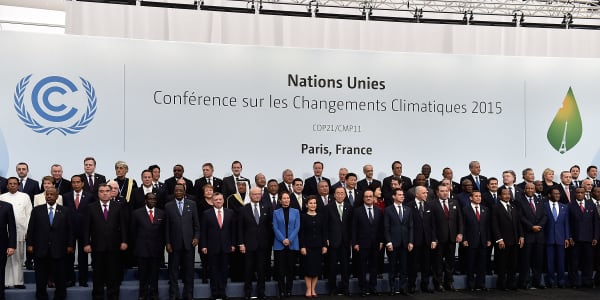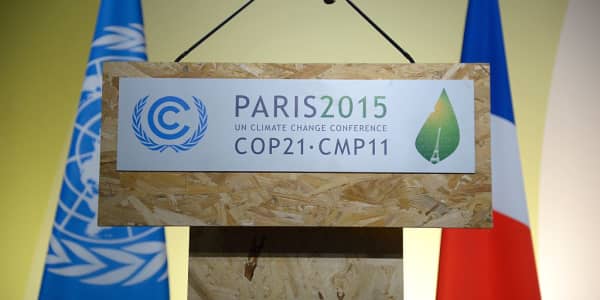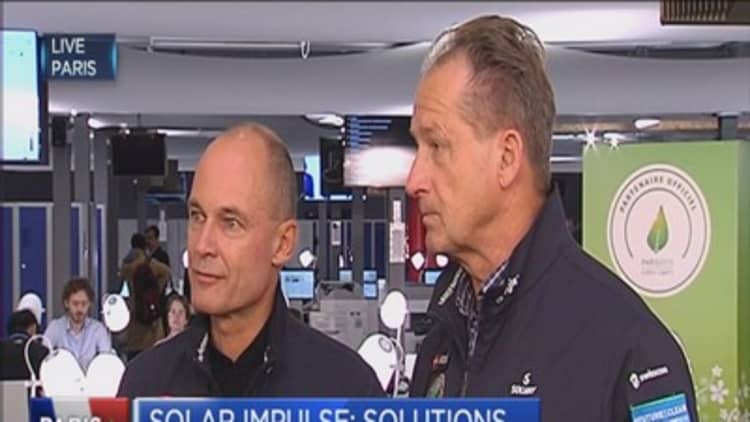


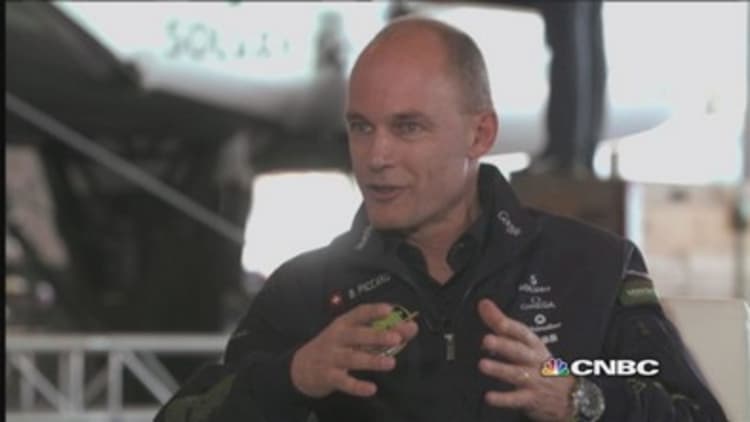
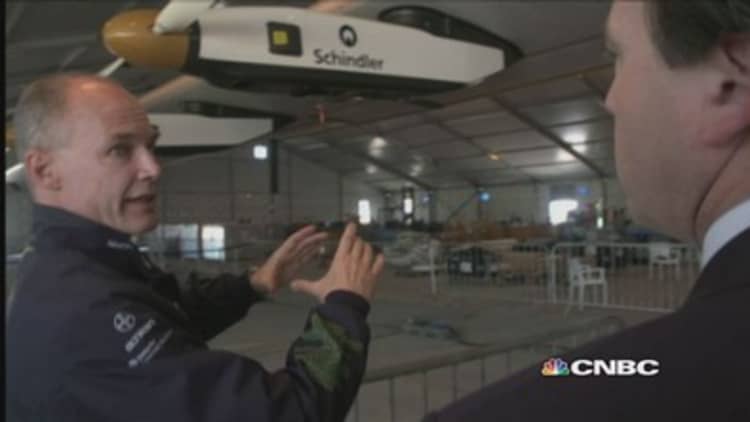
The people behind the first solar-powered round-the-world flight believe the technology used in the Solar Impulse aircraft will inspire society to adopt renewable products and technology in their lives.
"The goal is not only to use solar power more, the goal is to show that we can save energy by being more energy efficient," pilot and chairman at Solar Impulse, Bertrand Piccard told CNBC Tuesday at the United Nation's climate change talks in Paris.
In March 2015, Solar Impulse 2, the solar-powered aircraft took off on its round-the-world flight from Abu Dhabi, and despite being grounded in July, the Swiss-led team plans on completing its journey from April 2016.
"This is the type of technologies we have: electrical motors, lighter structures, new batteries, LED lamps. All the new system for management of electricity. All this should be implemented in our daily life, to replace the old polluting systems."
Everything society uses currently for energy is a "100 years old" Piccard said, adding that if the world wants to be cleaner and solve climate change, "it will be done only by having these new technologies which are profitable, create jobs, make new industrial markets and at the same time, reduce CO2 emissions."
Along with many new technologies, in-depth research, engineering and costs are essential to creating a finalized, functional product.
Already the budget for Solar Impulse has come to some $170 million since its inception, according to Reuters, however, Piccard remained confident that the investments were worth it as it was "promoting cleaner solutions for the future."
Society needs to shift its mindset when looking at clean technologies, seeing it as an "investment" rather than just costing money, said Piccard.
"It's not just producing more energy, because this is not always profitable, it's about saving energy and opening this new industrial market, and this is a way to make money."
"We need to show that (cleaner energy) is feasible and that its possible," André Borschberg, Solar Impulse's co-founder and CEO added, while Piccard suggested a "legal framework" would help push people to save more energy and use new technologies.
The aim of Solar Impulse is "not to create the new aviation industry", Borschberg said, but to develop products which are more energy efficient and used by consumers.
—By CNBC's Alexandra Gibbs, follow her on Twitter @AlexGibbsy.








